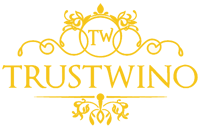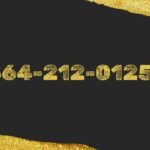In today’s increasingly interconnected world, the way we manage our personal affairs has evolved rapidly. Utility bills and identification documents, once simple records of consumption and identity, have become essential tools for accessing services, verifying identities, and ensuring smooth interactions in everyday life. Whether you’re setting up a new home, applying for services, or simply proving your residence, these documents are crucial.
In a digital age where you can find free legal documents to download with ease, understanding the role of utility bills and IDs in modern living has never been more important. This article will explore how these documents simplify daily transactions and enhance the convenience of modern life.
Utility Bills: Beyond Payment Proof
Utility bills, such as those for electricity, water, gas, or internet services, are often perceived as routine paperwork, serving little purpose beyond reminding us to pay for the services we consume. However, their role extends far beyond that of mere financial reminders. Utility bills are key documents in various administrative processes, often acting as proof of residence or as a requirement for accessing certain services.
Proof of Residence: One of the most common uses for utility bills is to provide proof of residence. Whether you’re opening a bank account, registering for government services, or enrolling your children in school, you’ll likely be asked to provide documentation that confirms your address. A recent utility bill with your name and address serves as a trusted form of proof. This is especially useful in situations where a formal lease agreement may not be available or where other forms of address verification are required.
Setting Up Services: When moving to a new home, one of the first tasks on your to-do list will likely be setting up utilities—electricity, water, internet, etc. Utility bills from your previous residence can expedite this process. Service providers often require proof of your previous utility payments to set up new accounts or transfer services to your new address. In some cases, a history of prompt payments on your utility bills can also serve as a form of credit reference, helping you to establish services more easily.
Rental Applications: If you’re renting a property, utility bills can play a significant role in the application process. Landlords and property managers often request recent utility bills to confirm your residency and verify that you have a stable living situation. This is particularly relevant if you’re moving from another city or country, where traditional rental references may not be applicable. A clean record of utility bill payments can boost your credibility as a reliable tenant.
Identification Documents: The Keys to Access
While utility bills help establish where you live, identification documents are essential for confirming who you are. These documents, such as national ID cards, driver’s licenses, and passports, are integral to modern living, enabling you to access services, travel, and engage in a variety of legal and financial transactions.
National ID Cards: In many countries, a national ID card is the primary document for verifying identity. It is used for everything from voting to accessing healthcare services, opening bank accounts, and more. The convenience of carrying a single document that is widely accepted across different sectors cannot be overstated. For expatriates or long-term travelers, obtaining a national ID card in a new country can simplify interactions and reduce the need for multiple forms of identification.
Driver’s Licenses: A driver’s license serves a dual purpose as both a permit to operate a vehicle and a widely accepted form of identification. It is often required for domestic travel, renting vehicles, and verifying age. In many countries, your driver’s license also serves as proof of residence, making it a multifunctional document that streamlines various processes. Ensuring that your driver’s license is up to date and reflects your current address is crucial for maintaining its utility.
Passports: While passports are primarily associated with international travel, they also serve as a robust form of identification for various legal and financial processes. A passport can be used as a primary or secondary form of ID, especially in situations where other forms of identification may not be accepted. For those living abroad, a passport remains a vital document, often required for residency applications, banking, and other essential services.
The Digital Evolution: Accessing Documents Online
The digital revolution has transformed how we access and manage documents. Gone are the days of keeping physical copies of every bill and ID; today, much of our documentation can be accessed, stored, and shared online. This shift towards digital documentation has introduced new levels of convenience, but it also requires a careful approach to security and organization.
Online Access to Utility Bills: Many utility companies now offer digital billing options, allowing customers to view and pay bills online. This not only reduces paper waste but also ensures that your billing history is readily accessible. With just a few clicks, you can download and print your utility bills whenever you need them, making it easier to provide proof of residence or payment history. This digital accessibility is especially beneficial for those who frequently move or travel, as it eliminates the need to carry physical documents.
Digital ID Cards: Some countries have introduced digital versions of national ID cards, which can be accessed via smartphones or other electronic devices. These digital IDs are often linked to secure databases, allowing for real-time verification of identity and reducing the risk of document fraud. Digital IDs can be used for a wide range of purposes, from accessing government services to making secure online transactions. However, with the convenience of digital IDs comes the responsibility of protecting your personal information through strong passwords and secure connections.
Free Legal Documents: The availability of free legal documents to download has made it easier than ever to manage personal affairs. Whether you need a template for a rental agreement, a power of attorney, or a bill of sale, these resources are readily available online. While they simplify the process of drafting legal documents, it’s important to ensure that the documents you download are up to date and relevant to your specific jurisdiction. Using these documents in conjunction with your utility bills and IDs can streamline everything from rental applications to estate planning.
Conclusion: Embracing Convenience in Modern Living
Utility bills and identification documents are far more than simple records of payment and identity—they are essential tools that unlock convenience in modern living. By understanding the full range of their uses and embracing the digital tools available for managing them, you can simplify many aspects of daily life. From setting up services in a new home to verifying your identity in a foreign country, these documents play a critical role in ensuring that your interactions are smooth, efficient, and hassle-free.
As we continue to navigate the complexities of modern life, the importance of these documents will only grow. By staying organized and making use of digital options, you can ensure that you’re always prepared, no matter where life takes you.











